Resources
The loss of a loved one is one of the most difficult situations to face in life. This can be especially trying if you are in charge of making the funeral arrangements. Our family here at FuneralHomes.com would like to share with your family some points from experienced funeral directors that will help you in such a troubling time.
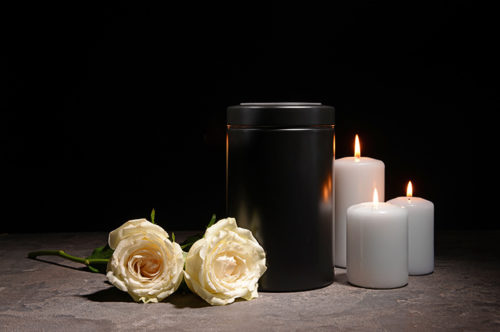
A Guide To the Cremations Process
- November 9, 2021
- Planning
No matter how you choose to memorialize a loved one after their passing, it is a decision that carries great emotional sentiment. While the more traditional method of memorializing a loved one through a burial can seem like a much more straightforward process, the process of cremation can feel mysterious, foreign, and even scary in comparison. Choosing cremation to pay homage to your loved one carries many benefits such as lower cost, more personalization options after in regard to your being able to scatter the remains in various locations, and it is even a more eco-conscious choice for the environment. You may find that cremation is the best choice for you to pay tribute to your loved one and to honor their life and legacy in a meaningful way.
If you are arranging a loved one’s funeral, and are curious about cremation, we have assembled a basic guide to the process, so you are best prepared and know what to expect.
What is Cremation?
Cremation is the process of transforming a person’s remains through intense heat, flames, and evaporation into “ashes.” While most people think of these ashes as resembling that of fireplace ashes, cremated remains are more complex in composition, containing tiny fragments of bone as well.
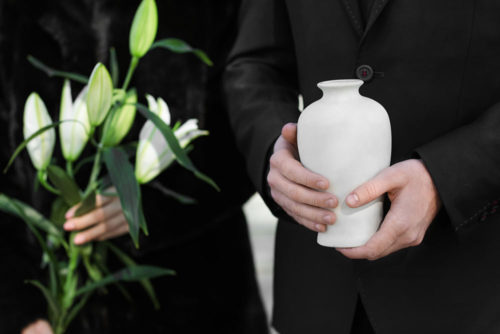
Is it Acceptable to Divide Cremation Ashes?
- November 5, 2021
- Customs
Cremation is becoming an increasingly popular method for paying tribute to a loved one who has passed. In addition to its eco-friendly, smaller global footprint, a decline in religious traditions, and its lower cost than burial services, the simple fact that it allows family members to equally divide the decedent’s ashes amongst them also accounts for its growing popularity. In the past, families would decide who amongst them would receive the ashes of their loved one. Thankfully, those days are gone, and families can now divide the remains into individual keepsake urns, and then equally divide those between family members.
If your loved one has passed, you may be wondering if it is even acceptable to divide their ashes amongst family members. Regardless of what the law and religions have to say about it, if it was your loved one’s wish to be cremated and then have their remains shared between family members, that is what should be done to pay homage to your loved one’s legacy. We will explore the topic in more depth here, reviewing the various legal, religious, and personal implications of dividing cremated ashes.
What do Religions Have to Say About Dividing Cremated Ashes?
Depending on differing theological perspectives, the standpoint of religion varies in its views on dividing cremated ashes. According to Muslim and Jewish religious traditions, the act of cremation itself is looked down upon as it is seen as an action that dishonors the human body. Buddhism, Hinduism and other Eastern religions, on the other hand support and even strongly encourage cremation, but do not offer any specific guidelines as to how cremated remains should be handled. The Christian church is silent, on the matter altogether.

Can You Still Hold Traditional Funeral Services if You Choose to Do Cremation?
- November 5, 2021
- Celebrations of Life
Cremation is becoming a popular choice for families as a way of memorializing their loved ones. It is a common misconception however, that if you choose to do a cremation for your loved one, that you cannot hold a visitation, wake or other traditional funeral services. You need not be concerned about this. In truth, it is not only accepted to hold a visitation or funeral service before a cremation; it is completely appropriate to do so. The important thing is to honor your loved one in a way that will be sentimental and meaningful for you and your family that also abides by your loved one’s personal wishes. One of the benefits to choosing cremation is that families can enjoy more freedom in choosing which kind of ceremony they would like to hold to pay tribute to their loved one. So, the key takeaway here is that most likely, your needs and wishes can be accommodated to honor your loved one before or after cremation.
Are Traditional Memorial Services Held Before or After the Cremation Process?
While a traditional memorial service can be held prior to or after the cremation process, it is more common for it to take place before, This also enables you to have the opportunity to hold an open casket as well. Usually, in a wake, family members visit their loved one prior to the funeral service, with the casket present and the body of their loved one embalmed inside. With visitations on the other hand, it is not necessary for the casket or the body of the deceased to be present. Visitations usually occur one day before or the same day as the memorial services.
How is the Casket Handled in Cremation?
If your loved one is cremated prior to visitation, a “rental” casket would be used for the visitation or wake ceremony. The exterior of the casket would be of a hardwood shell, and would look as such to any one viewing it, but the interior would contain the cremation container holding your loved one’s remains. The hardwood shell casket would be re-used while the interior will be cremated with the deceased, making it a more environmentally conscious as well as economical option than if you were to use a cremation casket.

What religions allow for a cremation?
- November 5, 2021
- Customs
How Do Different Religions View Cremation?
Religion can ground the trajectory of our lives, providing a spiritual and moral framework to guide how we conduct ourselves, the values we adhere to and define how we fit into our community and society. But what role does religion play at the end of our lives, specifically in regard to choosing cremation as a method of memorization? And what does religion have to say about we should care for the ashes we will eventually all become as our bodies are returned to the earth?
As cremation grows in popularity as a method of paying tribute to your loved one, many wonder about the viewpoints and perspectives various religions have towards it. Here, we will explore how various major religions view cremation and where it fits into each religion’s individual ethos.
Which religions most widely accept cremation?
Buddhism
Buddhism is founded upon a belief that at the end of a person’s life journey, he or she will go through a process called samsara or reincarnation. Cremation is accepted in Buddhism as a memorialization ritual that helps release the body from its physical form to aid in its spiritual transformation, while caring for the person’s mental and physical state and honoring their life. The leader of the Buddhist religion, Gautama Buddha was himself cremated and many people who observe Buddhist religious practices today follow suit, also choosing cremation as a prefered method of memorialization.
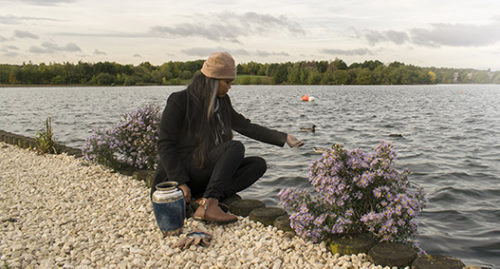
Why Cremation is Growing in Popularity
- November 5, 2021
- Celebrations of Life
When a loved one dies, the kind of memorial service you choose to have for them is incredibly important in honorably commemorating their life and legacy. In recent years, cremation has become a popular choice of memorial service amongst families in the U.S. In fact according to a 2017 report by the Cremation Association of North America, for the first time ever more Americans are choosing cremation ver traditional methods of burial to pay tribute to their deceased loved ones.
What accounts for this growing popularity of cremation? Cremation offers a plethora of benefits that make it the smarter choice for many families on various economic, social, demographic and religious levels. We will explore those factors here so you can decide whether cremation will be the best method of memorialization for your loved one.
1. More Economical In Cost
Cremation is considerably less costly than that of a traditional burial. This is due to the fact that it is a simpler method of commemoration that requires far less steps and processes than that of traditional burial which requires a casket, embalming, burial plot, etc. All of those individual processes greatly add up in cost. Many families enjoy the simplicity of cremation, and the ease of being able to conduct such a service without having to worry about affording and coordinating all of the other processes required for burial, during an already challenging time.
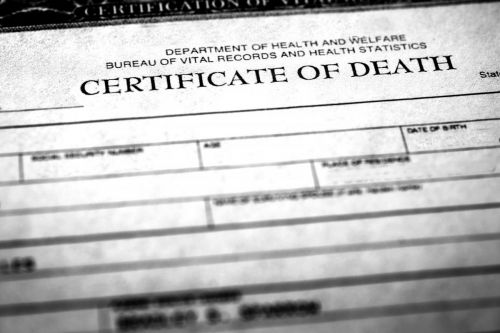
How To Get A Death Certificate
- November 4, 2021
- Planning
If you recently lost a loved one, you may be wondering how you can obtain a death certificate for them. In this emotionally difficult time, the last thing you want is to worry about the logistics of dealing with how to attain a death certificate, and what it needs to include.
So, we put together this helpful guide offering all the information you need to know, regarding obtaining a death certificate for your loved one.
After someone dies, you are legally required to register their death with the local or state office of vital statistics within a few days of their passing, as well as issue a death certificate for them. These will be necessary in order to make funeral arrangements for your loved one, as well as handle their personal, financial and legal affairs.

Is it Necessary to Embalm A Body Before Cremation?
- November 4, 2021
- Customs
If you recently lost a loved one, and you’re considering cremation for them, you may be wondering if it’s required or necessary to do an embalming prior to their cremation. As you navigate an emotionally complicated time, the last thing you need is to be bogged down understanding the requirements of different memorial services. So, we will break it down here, discussing what the practice of embalming entails and the role it plays in regards to cremation.
What is Embalming and Why is it Performed?
Embalming refers to a method of preserving the body of a deceased person using a process of disinfection and treating the body with a preservative solution in order to slow down the decomposition process.
Delayed Memorial Service
Maybe, you have family members coming in from out of state to attend the funeral and therefore, there will be a couple of days in between your loved one’s passing and services. In such situations in which there will be a prolonged period of time in between a person’s death and their cremation, it is advisable to have the body embalmed first to preserve the body and slow down its decomposition.
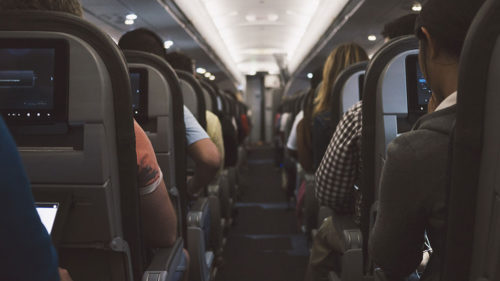
A Guide to Flying With Cremated Ashes and Urns
- November 4, 2021
- Planning
Losing a loved one and coordinating funeral arrangements and memorial services for them is emotionally demanding enough. Now, add to that having to travel to transport their cremation remains and it adds a whole new level of complexity and difficulty to an already challenging situation.
If you do need to fly to transport or retrieve cremated remains, you may be wondering what the TSA regulations and rules are regarding flying with cremated ashes. We have put together a guide offering you helpful information you need to know with important tips on how to travel with cremated remains.
1. You may transport cremated ashes in bags or checked bags
You should always check with your airline to review their rules and regulations regarding traveling with cremated ashes. The TSA does allow cremation urns to be checked or taken in your carry on luggage. However, not every airline accepts cremated remains to be taken aboard in checked luggage, so you should always check with your airlines to review their particular rules and regulations regarding travelling with cremated remains. Regardless of regulations, it is not advised to take cremation urns on board in checked luggage, anyway as you run the risk that your luggage may get damaged or lost. And the last thing you want is anything happening to your loved one’s remains. Therefore, it is better to just keep your urn in your carry on bag for peace of mind during your travels.
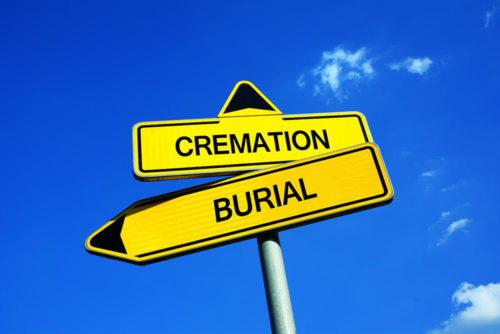
Cremation or Burial? Which is best for your loved one.
- November 4, 2021
- Celebrations of Life
Losing a loved one is an incredibly emotionally difficult experience. In addition to arranging funeral and memorial services, and handling their personal affairs you may be trying to decide between a cremation or burial to determine which is best for your loved one. While burial and cremation are both popular choices for memorializing the deceased, cremation has actually surged in popularity in recent years for a variety of reasons. A deeply personal and meaningful decision, there are many factors to consider in determining which will be best for your loved one between cremation and burial.
We will analyze these differences and factors of consideration to help you determine between cremation or burial to decide which is best for you and your family.
What are the Differences Between Cremation and Burial?
During cremation, a body is incinerated so that all that remains are cremated ashes. With a burial the body stays unscathed, and is buried in the ground in its intact state. Burial or cremation can be performed immediately following the decedent’s death, after a funeral service or prior to a memorial service. Also, contrary to common belief, you can still have a viewing of the body or a wake before a cremation, just as you can prior to a burial. With burial, the body is either enshrouded into the ground or entombed in a mausoleum. In contrast, after cremation the cremated remains of the decedent are given to a family member to be used however the family wishes. Cremated remains can either be kept in an urn, scattered at different locations or also buried in the ground if the family wishes to do so.
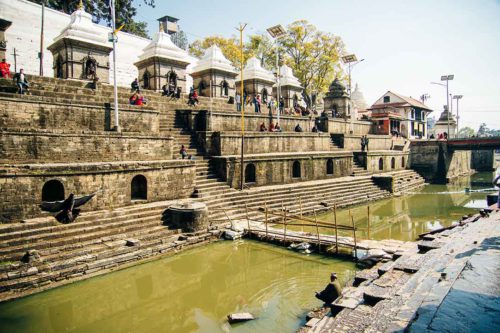
The History of Cremation in the Western World and the U.S.
- November 4, 2021
- Celebrations of Life
Since ancient times, people have been honoring their loved ones through the practice of cremation. While cremation as a method of memorialization has increased in popularity in recent years, cremation has a rich history dating back to as early as the Stone Age. In ancient Greece, cremation began as an act that was associated with celebrating the bravery and valour of heroes who died in war, paying tribute to them with an ending as grandiose to how they had lived their life, serving their land and people. The Romans also honored their military heroes through cremation and the epic and extravagant method of memorialization revealed the status of the decedent. In India, cremation has always been recognized and appreciated as an important practice helping to free the soul on its journey through reincarnation.
While cremation has been practiced for centuries, the method of memorialization as we know it today did not develop until the late 19th century in Italy. In this article we will take a look at the history of cremation in the western world and North America, and explore how it transformed into the act of cremation we are familiar with today used in modern times.
How Did Modern Cremation As We Know It Today Begin?
Cremation as we understand of it today started when Professor Brunetti invented the first cremation chamber in Italy in 1873. Prior to the invention of an enclosed chamber in which the deceased would be incinerated using high temperatures of concentrated heat to turn into ashes, people honored their deceased loved ones by burning them on an open flame. Cremation performed in this manner in a cremation chamber was viewed as possibly a healthier method of paying tribute to someone who has passed as compared to traditional burial that was then considered to be potentially hazardous and detrimental to public health. After Brunetti’s invention, a movement started in Europe and the U.S. to foster interest in cremation as a method of memorialization. This movement led to the creation of the first crematorium built in North America in Washington, Pennsylvania in 1876.
